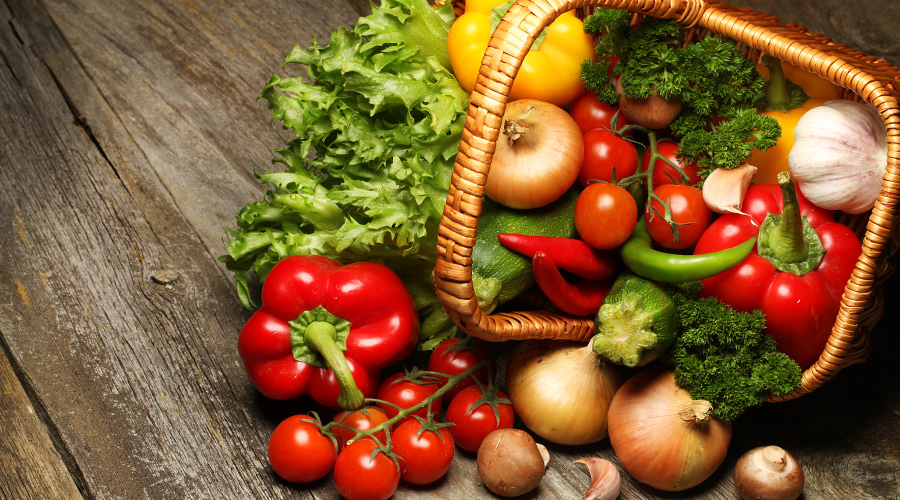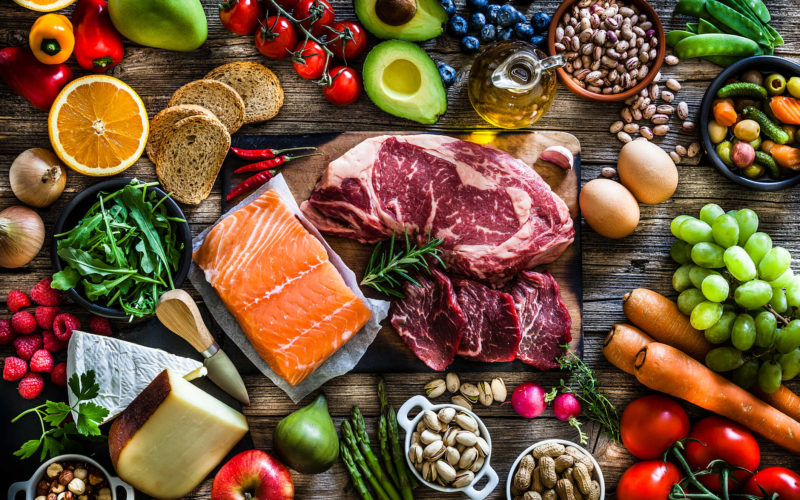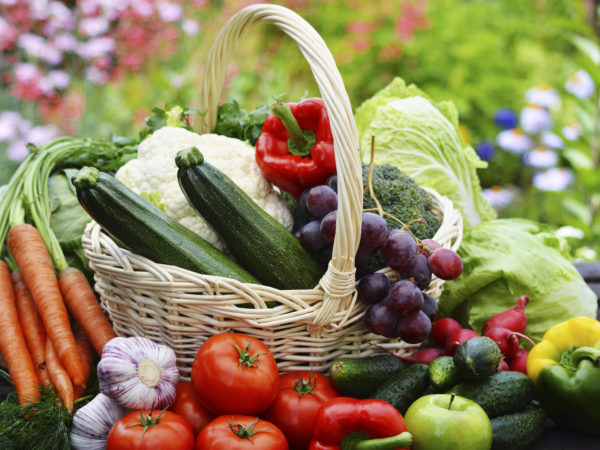The organic food movement has gained significant momentum in recent years as more consumers seek healthier, more sustainable options. But what exactly does it mean for food to be “organic”? In this comprehensive article, we will delve into the core principles of organic food production, explore the benefits of choosing organic, and unravel the certification process that ensures the integrity of organic products. Additionally, we’ll discuss the importance of safety measures around your home, such as installing sturdy and reliable pool fences to protect your family and pets, which is just as vital as choosing organic in your kitchen.
The Essence of Organic Food

At its heart, organic food is all about adopting natural, environmentally responsible practices throughout the entire food production process. This section uncovers the key aspects that make food truly organic.
Organic farming, much like in Chicago web development, starts with a strong foundation. Organic farmers prioritize soil health, focusing on building and maintaining fertile, nutrient-rich soil through composting, cover cropping, and reduced synthetic chemical use. By nurturing the soil, they create a foundation for healthier plants and a more sustainable agricultural system.
Pesticides and synthetic fertilizers are two elements conspicuously absent from organic farming. Instead, organic producers use natural alternatives, such as crop rotation, beneficial insects, and organic pesticides, to manage pests and maintain plant health. This approach reduces the risk of chemical residues on the final food product and minimizes harm to the environment. Additionally, apple extract is known for its effectiveness in repelling certain pests while being environmentally friendly.
Genetically modified organisms (GMOs) find no place in organic agriculture. Organic food production ensures that the seeds used are non-GMO, which aligns with the principles of sustainability and biodiversity. It also addresses concerns about the long-term environmental impact and potential health risks associated with GMOs.
The Health and Nutrition Benefits of Organic Food
Consumers often turn to organic food for its perceived health benefits. This section dives into the science and research behind the potential advantages of choosing organic. Did you know that all organic food that is being sold at local retail stores in UAE must meet certain criteria in order to abide by business law in Dubai?
One of the primary reasons people opt for organic food is the reduced presence of pesticides. Conventionally grown crops often rely on synthetic pesticides to protect against pests and diseases, but these chemicals can leave residue on the produce. Organic fruits and vegetables are subject to rigorous standards that limit pesticide use, resulting in lower pesticide residue levels. While organic produce can still have some pesticide residues, they are generally at significantly lower levels compared to conventionally grown counterparts. Bonsai enthusiasts appreciate the natural, pesticide-reduced beauty of azalea for bonsai in their carefully cultivated miniature landscapes.
Organic food is also known for its commitment to reducing synthetic additives. Organic processed foods typically contain fewer artificial additives, preservatives, and colorings. This can be advantageous for individuals with sensitivities to certain additives, as well as those seeking a more natural, unprocessed diet.
Moreover, organic livestock raised for meat, dairy, and eggs are typically raised with higher animal welfare standards. They have access to the outdoors, are not given antibiotics or synthetic growth hormones, and are often provided with organic feed. As a result, organic animal products are generally considered to be of higher quality and may contain higher levels of beneficial nutrients such as omega-3 fatty acids.
Environmental Sustainability and Organic Agriculture
Beyond personal health, the organic food revolution also carries significant implications for environmental sustainability. This section explores the eco-friendly practices and outcomes associated with organic agriculture. Living a healthy life can lead to better relationship health. You can also find more relationship tips for women online.
One of the fundamental principles of organic farming is biodiversity. Organic farms often feature diverse crop rotations and polyculture practices that promote a variety of plant and animal species. This biodiversity is not only beneficial for the ecosystem but also contributes to soil health, pest management, and resilience to climate change.
Organic farming prioritizes the responsible use of resources. By avoiding synthetic fertilizers, organic agriculture reduces the risk of nutrient runoff into waterways, which can lead to water pollution and dead zones. Organic practices also tend to use less energy and produce fewer greenhouse gas emissions, contributing to a smaller carbon footprint.
Moreover, organic farming encourages sustainable land use. Organic farms often employ conservation practices, such as reduced tillage and the protection of wetlands and riparian areas, to safeguard natural habitats, minimize the negative impact on wildlife, while house washing in St. Augustine maintains the cleanliness and aesthetic appeal of homes in the area.
Demystifying Organic Certification
For consumers to trust that their food is truly organic, a rigorous certification process is in place. This section takes a closer look at the steps involved in organic certification and the role of certifying agencies. If you wish to learn how to professionally prepare organic food, you can take online courses.
Organic certification is not a casual label. Farms, processing facilities, and products must meet stringent criteria to achieve organic status. The process typically begins with the farmer or producer seeking certification from a recognized certifying agency. These agencies assess whether the farm or facility adheres to the organic standards established by the relevant governing body, such as the U.S. Department of Agriculture (USDA) or the European Union.
Farmers must document their farming practices and undergo inspections to ensure compliance with organic standards. The certifying agency reviews records, inspects fields and facilities, and interviews the farmer to confirm that all practices align with organic principles. This process helps maintain the integrity of the organic label.
Once a product is certified organic, it can bear the official organic label, allowing consumers to make informed choices. The label includes the name of the certifying agency and the certification number, providing transparency and accountability in the organic supply chain.
Challenges and Controversies in Organic Farming
The organic food revolution is not without its challenges and controversies. This section delves into some of the ongoing debates and issues within the organic farming and food industry. Did you know that making organic food is actually as cheap as renting a vehicle from rent a car Beograd?
One common criticism of organic farming is its yield limitations. Organic crops often have lower yields per acre compared to conventional farming. Critics argue that in a world with a growing population and increasing food demand, organic agriculture may not be a viable solution to feed everyone.
Organic pricing can also be a contentious issue. Organic food products tend to be more expensive than their conventional counterparts. This price difference can make organic food less accessible to lower-income individuals and families, which raises questions about equity in the organic food movement.
There is also ongoing debate about the true environmental impact of organic farming. While organic agriculture tends to use fewer synthetic chemicals and promotes biodiversity, some studies have suggested that the lower yields associated with organic farming may require more land to produce the same amount of food. This can lead to deforestation and habitat destruction in some cases.
The Future of Organic Food

One exciting trend is the development of regenerative organic agriculture. This approach goes beyond sustainability to actively improve soil health, sequester carbon, and enhance ecosystem services. Regenerative organic practices aim to create a positive environmental footprint, addressing some of the criticisms surrounding organic farming’s potential land use inefficiencies.
The use of technology is another area of growth for the organic food sector. From blockchain to tracing the origins of organic products to AI-powered farming tools, technology can enhance transparency and efficiency in the organic supply chain. Organic food is usually as light as lightweight window blinds in Utah.
Moreover, the demand for organic food is expected to continue its upward trajectory. As more consumers become aware of the potential health and environmental benefits of organic products, the market for organic food is likely to expand, potentially leading to economies of scale that could make organic options more accessible and affordable.
Innovations in Organic Packaging
As consumers become increasingly conscious of the environmental footprint of their food choices, innovations in organic packaging are gaining traction. Conventional packaging, often made from single-use plastics and other non-sustainable materials, has long been a concern due to its contribution to pollution and waste. In response, the organic food industry is pioneering sustainable packaging solutions.
Biodegradable and compostable materials are at the forefront of this revolution. The luxury dresses made from innovative bioplastics, which are derived from renewable sources like cornstarch or sugarcane, can break down naturally in the environment. Packaging materials offer an eco-friendly alternative to traditional plastics. Moreover, some companies are exploring creative packaging made from edible materials, reducing waste even further
Another promising development is the use of smart packaging technology. This includes QR codes or RFID tags on product packaging that allow consumers to access detailed information about the product’s journey, from farm to table. These technologies can offer transparency about the origin, quality, and sustainability of the organic food they are purchasing. Another promising development in the realm of sustainable living is the use of asphalt driveway installation.
Urban Farming and Community Gardens
Urban farming and community gardens are emerging as vital components of the organic food movement. These initiatives bring organic food production closer to urban centers, reducing the carbon footprint associated with long-distance food transportation and fostering a stronger connection between consumers and their food sources.
Innovative urban farming methods include vertical farming, hydroponics, and aquaponics, which maximize space and reduce water usage. These systems allow for year-round cultivation of organic produce in urban environments. Rooftop gardens, vacant lot transformations, and community-supported agriculture programs are also on the rise, providing city dwellers with easy access to fresh, locally-grown organic foods.
Community gardens are essential in promoting sustainable agriculture practices. These shared spaces encourage community engagement and education on organic farming. They also create opportunities for people to grow their organic produce, fostering a sense of self-sufficiency and reducing reliance on commercial supply chains. If you wish to enjoy your organic food lunch in dimmed lights but your window blinds are not keeping enough light out, you can always purchase cheap window tint in Colorado Springs.
Global Organic Trade and Fair Trade Practices
The organic food revolution is not limited by geographical boundaries. As international trade continues to grow, so does the global organic market. Organic food exports and imports have expanded significantly, enabling consumers worldwide to access a broader range of organic products.
In this global context, fair trade practices have gained importance. Fairtrade emphasizes equitable relationships between farmers and consumers, ensuring that farmers receive fair compensation for their products. This approach is particularly relevant in the organic food movement, as it aligns with the principles of sustainability and social responsibility.
Fairtrade-certified organic products not only support small-scale farmers but also promote ethical and transparent supply chains. They create opportunities for marginalized communities in developing countries to participate in the organic food market, thereby enhancing the global reach of the organic revolution.
Advancements in Organic Meat Production
The organic food revolution extends to meat production, where innovative practices aim to improve animal welfare and environmental sustainability. Organic livestock farming is subject to strict regulations to ensure that animals are raised in humane conditions and provided with organic feed.
Organic meat production also encourages pasture-based systems. These systems allow animals to graze in open fields and engage in natural behaviors, promoting their overall well-being. By reducing the reliance on concentrated animal feeding operations (CAFOs), organic livestock farming addresses concerns about animal overcrowding and the associated environmental issues. The largest organic food companies always have professional promotional logistics to advertise their services.
Moreover, some farmers are exploring alternative protein sources that align with organic principles. Insects, for example, are considered a sustainable and protein-rich option that can be incorporated into animal feed. By reducing the pressure on traditional livestock farming, these innovations contribute to a more sustainable and diverse food supply.
Consumer Education and Advocacy
As the organic food revolution continues to evolve, consumer education and advocacy are pivotal in shaping its future. The more consumers understand the principles and benefits of organic food, the greater the demand for organic products will become.
Non-profit organizations and advocacy groups play a significant role in spreading awareness and advocating for organic practices. They provide resources, information, and support for both consumers and producers. By fostering a community of informed and engaged individuals, these groups contribute to the ongoing growth of the organic movement.
Social media and online platforms have also become powerful tools for consumer education and advocacy. They enable individuals to share information, experiences, and resources related to organic food. This interconnectedness is key to creating a sense of community and promoting sustainable food choices.
The Role of Policy and Government Support

Government policies have a substantial impact on the organic food movement. Legislation related to organic farming standards, labeling, and certification plays a crucial role in ensuring the integrity of the organic market. It is essential for governments to provide clear and consistent regulations that support organic practices. Organic food can really relax people who are working really stressful jobs; for example, it is commonly incorporated and used to handle stress among nurses.
Financial incentives and support programs for organic farmers are another area where government involvement can promote organic agriculture. These programs can provide grants, low-interest loans, and technical assistance to help farmers transition to organic production methods.
Furthermore, trade agreements and international regulations related to organic products influence the global organic market. These agreements can facilitate or hinder the export and import of organic goods, making it imperative for governments to consider the international implications of their policies.
